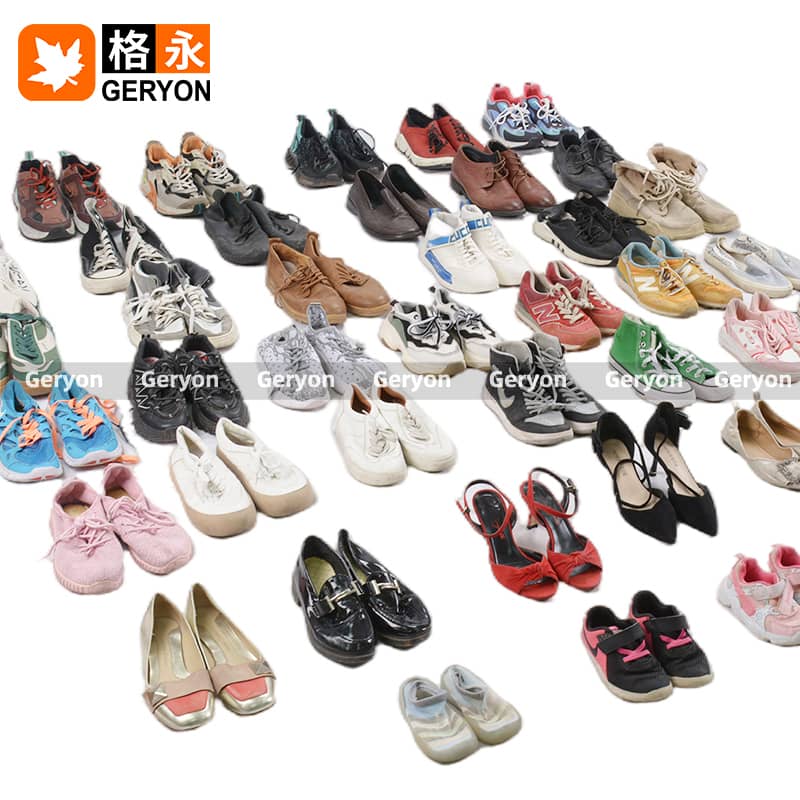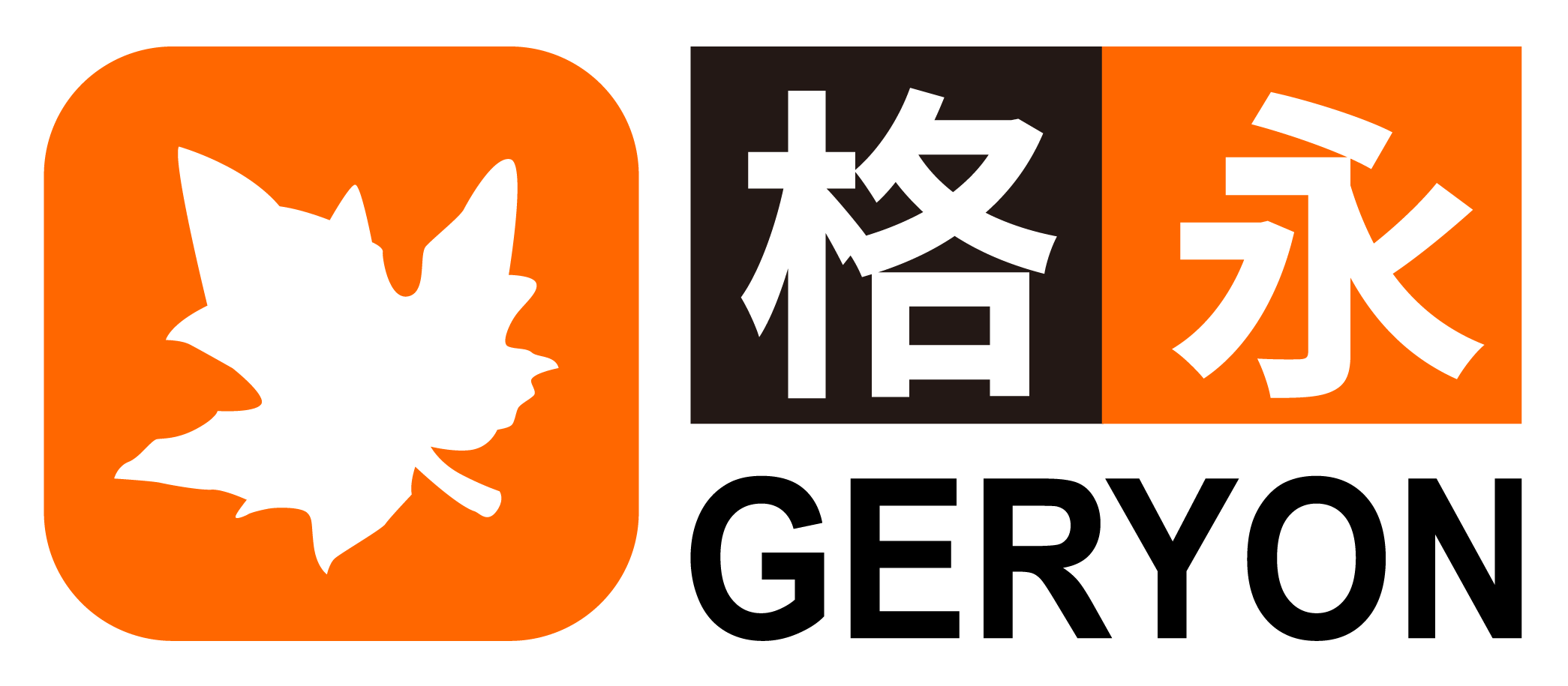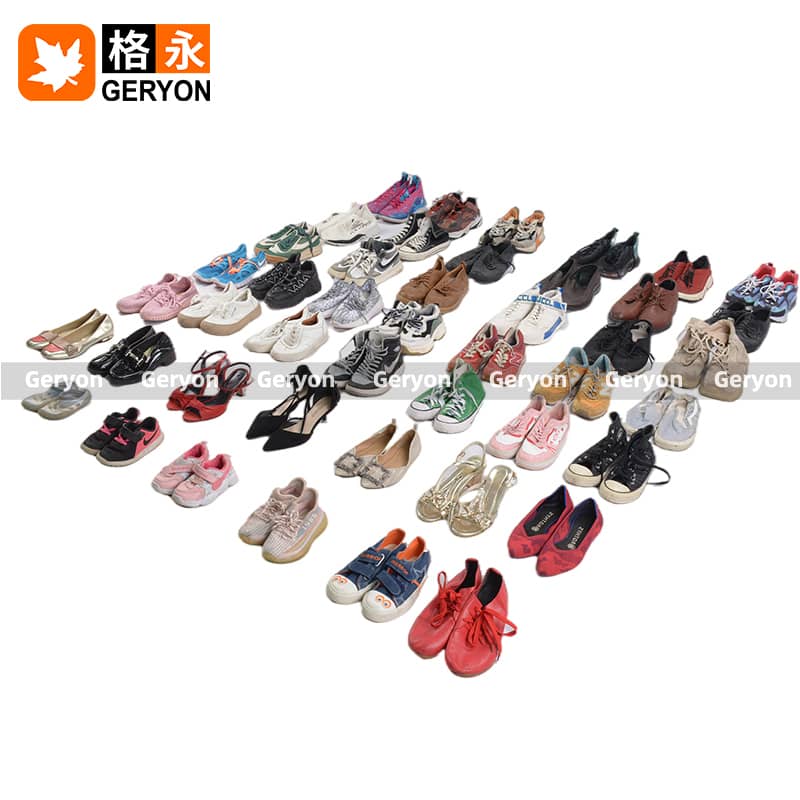As an importer of Liberia used shoes, navigating the complexities of wholesale supply chains is key to staying competitive. Whether you are new to the market or looking to scale your existing operations, understanding the ins and outs of sourcing used shoes for resale is essential. In this article, we will delve into the most effective wholesale supply chain solutions that can help businesses import high-quality used shoes and meet the needs of Liberian consumers.

Table of Contents
1. Introduction to Liberia Used Shoes Market
Liberia’s market for used shoes is expanding rapidly as more consumers opt for affordable, high-quality footwear. Liberia used shoes are becoming increasingly popular, especially in urban areas where lower-income households seek sustainable options. With limited access to new footwear due to high costs, used shoes provide a practical solution. B2B importers can tap into this growing demand by understanding the nuances of the market and establishing a reliable supply chain for used shoes. This section will provide insight into why Liberia used shoes represent a viable and profitable opportunity for businesses.
Understanding the Growing Demand for Used Shoes in Liberia
As Liberia’s economy grows, the demand for affordable footwear has significantly increased. Many Liberians find it more practical to purchase Liberia used shoes due to the lower price point compared to new footwear. The market for second-hand goods, including shoes, is thriving, with a strong demand for both men’s and women’s shoes. The shift towards second-hand products is partly due to their cost-effectiveness and the scarcity of affordable new footwear in the country. Importers can benefit from this growing demand by focusing on high-quality used shoes that meet local consumer needs.
Why B2B Importers Should Focus on Liberia Used Shoes
For B2B businesses, focusing on Liberia second hand shoes offers a lucrative opportunity. The cost of importing used shoes is typically lower than that of new shoes, allowing businesses to offer affordable products to local resellers and consumers. Furthermore, the local market in Liberia is highly price-sensitive, and second-hand shoes meet this demand. By importing Liberia used shoes, businesses can establish themselves as key players in the growing footwear market and cater to a large, underserved customer base.
2. Benefits of Importing Liberia Used Shoes
Importing Liberia used shoes offers several advantages for B2B businesses looking to establish a strong presence in the country. The economic benefits are clear, as second-hand footwear tends to be more affordable and can appeal to a larger segment of the population. This section explores why importers should focus on Liberia second hand shoes and how these benefits align with the needs of the local market.
Cost-Effectiveness and Affordability
One of the primary reasons for the growing demand for Liberia used shoes is their affordability. As a developing country, Liberia has a significant portion of the population that is highly price-sensitive. Used shoes offer a cost-effective alternative to new footwear, making them an attractive option for consumers. B2B importers can leverage the lower price of second-hand shoes to generate higher margins and meet the financial constraints of Liberian consumers.

Sustainable Footwear Solutions for Consumers
Sustainability is another driving factor in the demand for Liberia used shoes. As global awareness of environmental issues grows, consumers are becoming more conscious of the environmental impact of their purchases. Used shoes represent a sustainable option for Liberian consumers who want to reduce waste while still having access to quality footwear. Importers who focus on Liberia second hand shoes can align their business model with global sustainability trends, which can enhance their brand reputation and attract eco-conscious consumers.
Competitive Advantage for B2B Businesses
Importers of Liberia used shoes can gain a significant competitive advantage by offering affordable, high-quality products. The lower cost of importing used shoes allows B2B businesses to sell at competitive prices while maintaining healthy profit margins. Additionally, by offering a steady supply of sought-after footwear, businesses can establish themselves as reliable suppliers in the Liberian market, fostering long-term relationships with local retailers and resellers.
3. Identifying Reliable Wholesale Supply Chain Partners
To successfully import Liberia used shoes, it is crucial for B2B businesses to identify reliable wholesale supply chain partners. The quality and consistency of the shoes supplied are essential to meeting local consumer expectations and ensuring repeat business. This section will guide importers through the process of selecting the right suppliers and building strong relationships with them.
Key Considerations When Choosing a Supplier
When choosing a supplier for Liberia used shoes, importers should prioritize factors such as product quality, reliability, and pricing. It is important to partner with suppliers who have a proven track record of providing durable, high-quality used shoes that meet international standards. Importers should also ensure that the suppliers are able to meet demand consistently and on time. Building a solid relationship with reliable suppliers will ensure smooth operations and timely deliveries for Liberia used shoes.
How to Evaluate the Quality of Liberia Used Shoes
The quality of Liberia used shoes is crucial for gaining customer trust and maintaining business success. Importers should evaluate shoes based on their condition, style, brand, and wearability. It is important to establish clear guidelines for what constitutes acceptable quality to ensure that the shoes meet local market expectations. Inspecting samples, reviewing customer feedback, and visiting supplier facilities can help importers assess quality and avoid potential issues with defective products.
Building Long-Term Relationships with Suppliers
Building long-term relationships with suppliers is essential for ensuring a steady supply of Liberia used shoes. Successful importers should prioritize establishing trust and fostering communication with their suppliers. This can lead to favorable pricing, flexible terms, and priority service, especially during periods of high demand. By maintaining strong relationships with suppliers, importers can reduce the risk of supply chain disruptions and ensure the ongoing success of their businesses.
4. Steps to Effectively Source Liberia Used Shoes
Sourcing Liberia used shoes requires a well-planned strategy to ensure a steady and cost-effective supply. From selecting the right suppliers to navigating the regulatory landscape, this section will outline the key steps importers should follow to successfully source used footwear for the Liberian market.
Researching and Selecting the Best Wholesale Suppliers
Effective sourcing starts with thorough research. Importers should focus on identifying reputable suppliers who can consistently provide high-quality Liberia used shoes. This process may involve visiting supplier facilities, reviewing customer feedback, and requesting product samples. Researching suppliers who specialize in high-quality used shoes from reputable brands can help ensure that importers offer desirable products to their customers in Liberia.
Importing Regulations and Procedures for Liberia
Importers must familiarize themselves with Liberia’s regulations on importing second-hand goods, including footwear. Understanding the necessary permits, taxes, and customs procedures will help streamline the import process for Liberia used shoes. Ensuring compliance with all local laws can prevent costly delays or fines and ensure that the products reach the market on time. Importers should work closely with customs brokers or clearing agents to navigate the regulatory landscape and facilitate smooth imports.
Managing Logistics and Shipping Challenges
Shipping Liberia used shoes from international suppliers to Liberia requires careful planning and logistics management. Importers must coordinate shipping times, costs, and potential customs delays. Working with reliable freight forwarders and customs brokers can help ensure smooth and timely delivery of products, minimizing disruptions in the supply chain. Managing these logistical challenges effectively will ensure that Liberia used shoes are delivered on schedule and in good condition.
5. Maximizing Profit: Reselling Liberia Used Shoes
Once Liberia used shoes have been successfully imported, reselling them to local retailers and consumers becomes the next challenge. This section will explore strategies for maximizing profit through effective pricing, understanding local preferences, and marketing the products.
Understanding Local Market Preferences
To succeed in reselling Liberia used shoes, it is essential to understand the local market’s footwear preferences. Consumers in Liberia may have specific demands for particular styles, brands, or sizes, which should be factored into the sourcing strategy. By conducting market research and staying up-to-date on local trends, importers can ensure they are offering products that appeal to the widest audience.
Pricing Strategies for Successful Resale
Pricing plays a crucial role in the success of reselling Liberia used shoes. Importers should take into account the cost of importing the shoes, local competition, and the purchasing power of consumers when setting prices. Offering competitive prices while maintaining healthy profit margins is key to gaining market share and ensuring business sustainability.
Marketing Liberia Used Shoes to Your Target Audience
Marketing is essential to promoting Liberia used shoes in the local market. Importers can use a combination of traditional and digital marketing methods to reach potential buyers. Leveraging social media platforms, local events, and partnerships with retail stores can help increase brand awareness and drive sales for used shoes in Liberia.
6. Sustainability and Ethical Considerations
Importing Liberia used shoes comes with significant sustainability benefits, as it helps reduce waste and promotes the reuse of footwear. This section explores the environmental and ethical aspects of importing used shoes to Liberia and how businesses can align their practices with global sustainability goals.
The Environmental Impact of Used Shoes Imports
The importation of Liberia used shoes contributes to reducing waste and the environmental footprint of new shoe production. By promoting the reuse of footwear, businesses can play a role in environmental conservation. Additionally, Liberia used shoes offer an alternative to the disposal of gently used items, reducing landfill waste and encouraging sustainable consumption patterns.
Ensuring Ethical Sourcing and Fair Practices
Ethical sourcing is essential in the global trade of used shoes. Importers should ensure that the suppliers they work with follow fair labor practices and provide transparent sourcing methods. This can help avoid exploitation and ensure that the importation of Liberia used shoes benefits both the local community and the people involved in the supply chain.
7. Conclusion: Future Outlook for Liberia Used Shoes Market
The market for Liberia used shoes is poised for continued growth as demand for affordable and sustainable footwear increases. B2B importers who can effectively navigate the supply chain, understand local consumer preferences, and align with ethical and environmental practices will be well-positioned for success in this expanding market.
The Growing Potential for B2B Importers in Liberia
The future of Liberia used shoes looks promising, with opportunities for B2B importers to establish strong footholds in the market. As the population grows and urbanization increases, the demand for affordable footwear is expected to rise. Importers who adapt to these changes and offer high-quality, sustainable products will thrive in the expanding market for Liberia used shoes.

Key Trends and Opportunities to Watch
Key trends such as sustainability, eco-conscious consumerism, and the growing middle class in Liberia present exciting opportunities for importers. By staying ahead of these trends and focusing on high-quality used shoes that meet local preferences, businesses can continue to capitalize on the Liberia used shoes market for years to come.






